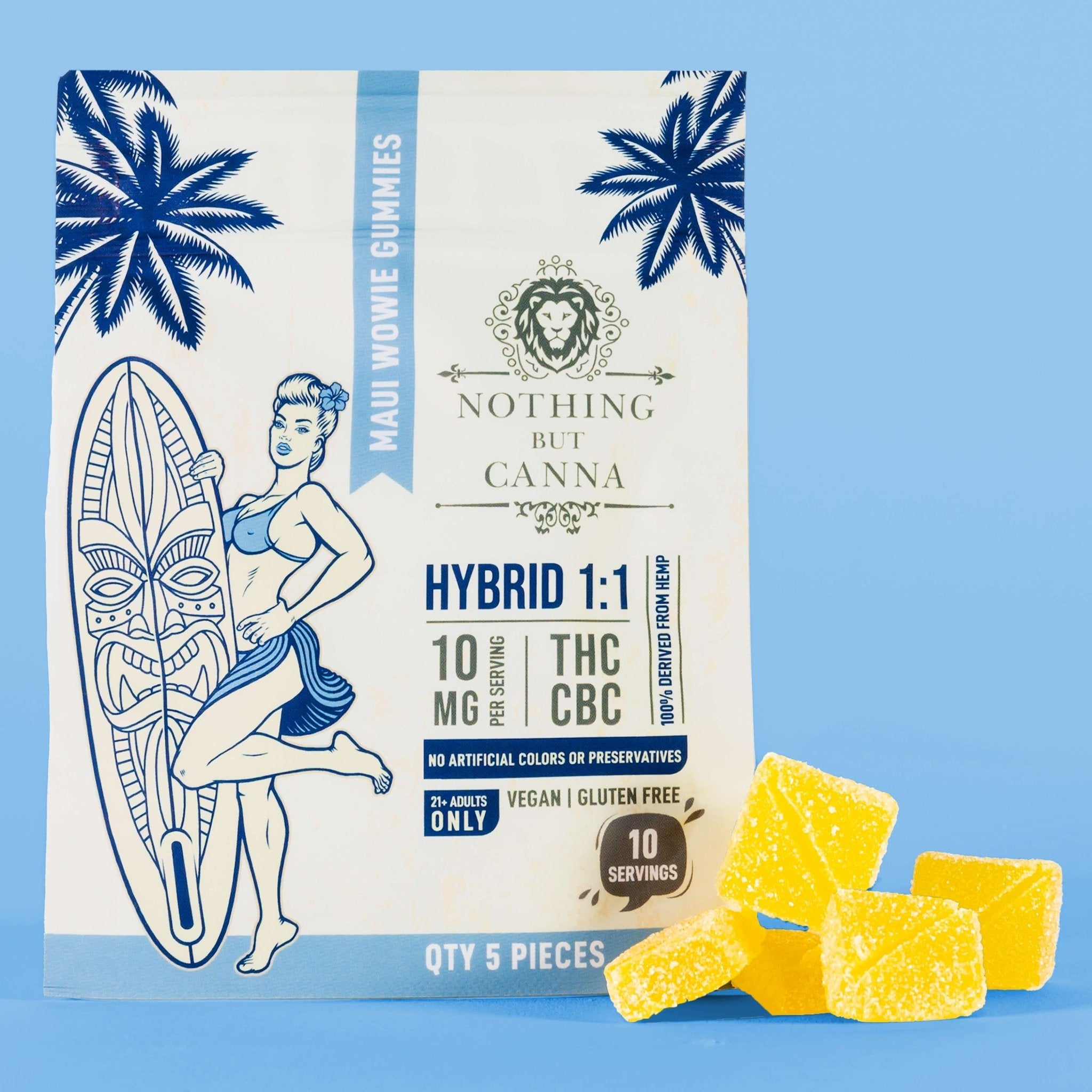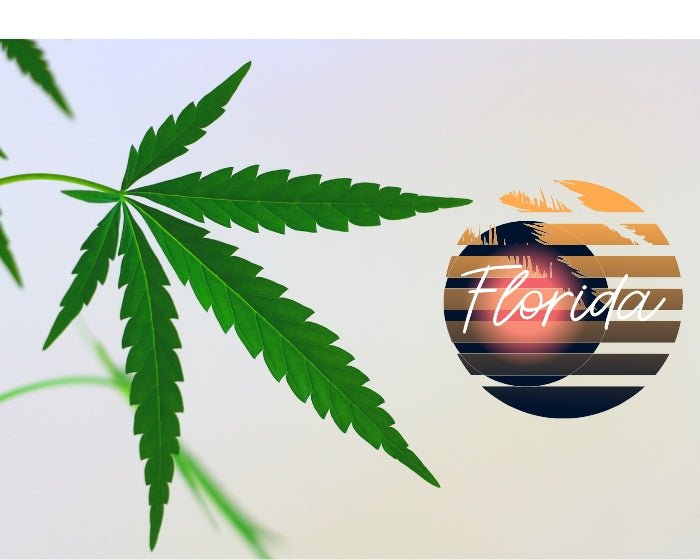Following intense criticism from hemp industry stakeholders and advocates, Gov. Youngkin agreed to make changes to the measure.

The continuing legislative soap opera involving Virginia's much-maligned and misunderstood hemp-based agricultural and product market added another dramatic episode this week. Earlier this year, the State legislature passed a bill that would have substantially restricted the still young and struggling hemp industry in the Cavalier State.
As first reported by WTVR Channel 6 in Richmond, the initial measure passed by the House and Senate aimed to clamp down on the widespread sale of unregulated hemp-based products containing chemically manipulated THC variants, most notably delta-8 THC.
The bill would have set THC limits for hemp products to two milligrams. For owners of hemp-related businesses, including those that manufacture and sell items like CBD oil, this cap amount would have effectively destroyed their companies.
In addition, those limits could also have devastating health and wellness impacts on individuals who have become reliant on what they deem as "life-saving" alternative treatments provided by hemp-based product offerings.
After listening to the thoughts expressed by industry stakeholders, experts and voters over the legislation's potentially damaging effects, Gov. Glenn Youngkin (R) has added amendments to the bill to alleviate the economic and health concerns surrounding the measure hopefully. One of those changes would allow hemp-derived products to contain more than two milligrams of THC per container, provided the amount of CBD in the item exceeds THC levels by a 25 to 1 ratio.
For Virginia mother, Lisa Smith, whose daughter Haley relies on CBD oil from out of state to treat seizures brought on by Dravet Syndrome, the governor's action comes as a welcome sigh of relief. In March, she sent a letter to the Governor and spoke directly to her local representatives, pleading for changes to keep her daughter's supply legal and safe.
Following Governor Youngkin's announcement of his amendments, Smith said, "Nice to know that you were heard. I'm totally behind [regulating synthetic THC products], but I don't want my child harmed in the same process."
"Nice to know that you were heard. I'm totally behind [regulating synthetic THC products], but I don't want my child harmed in the same process."
Lisa Smith, Virginia Mother
Along with the changes to THC limits, Youngkin removed a provision requiring adding bittering agents to topical hemp products. However, the measure still requires hemp retailers to notify state regulators that the hemp-derived items they sell have been lab tested and are accurately labeled.
In a statement regarding the amendments, Gov. Youngkin reiterated his commitment to the legislation's primary purpose by saying, "The hemp legislation continues to work to regulate synthetic products like Delta 8 and make sure we're protecting our children and Virginians from a consumer protection standpoint. I think we did a very good job with the legislation to make sure that CBD products are available, but there's still a limitation on synthetic THC content in those products. I think we came together with all participants, and we crafted a really good amendment."
"The hemp legislation continues to work to regulate synthetic products like Delta 8 and make sure we're protecting our children and Virginians from a consumer protection standpoint. I think we did a very good job with the legislation to make sure that CBD products are available, but there's still a limitation on synthetic THC content in those products. I think we came together with all participants, and we crafted a really good amendment."
Virginia Governor Glenn Youngkin (R)
However, not all interested and affected parties share in the governor's enthusiasm. One of those critics of the governor's legislative reaction to calls for change to the bill's content is Jason Amatucci, the founder and president of the Virginia Hemp Coalition.
Like many passionate lobbyists for the VA hemp industry, Amatucci applauds the efforts to address the rampant proliferation of unregulated hemp products like those containing synthetically manufactured delta-8 THC. However, he and a growing chorus of other critics of the bill believe that without further radical changes to the measure, Virginia hemp producers, manufacturers and retailers could face a severe existential threat from out-of-state industrial hemp producers.
"They had their chance to fix this bill. It's still not right. And now they want to say, 'well, you have to accept it,'" Amatucci said. "We're tinkering with nature here. If you take natural hemp extract, some of these natural extracts will not fit that 25 to one; it'll be a lower ratio. We need to open up this marketplace and these wellness products so that small businesses and family farmers can have an opportunity here."
"They had their chance to fix this bill. It's still not right. And now they want to say, 'well, you have to accept it.' We're tinkering with nature here. If you take natural hemp extract, some of these natural extracts will not fit that 25 to one; it'll be a lower ratio. We need to open up this marketplace and these wellness products so that small businesses and family farmers can have an opportunity here."
Jason Amatucci, Founder and President of the Virginia Hemp Coalition
Hemp operators like Savana Griffith, who owns and operates Hemp Spectrum in Virginia Beach, strongly echo Amatucci's sentiments. In a recent interview with The Virginian-Pilot, she expressed her belief that the adjusted 25 to 1 ratio is still too restrictive and could severely limit her business.
She says, "The leeway that he is asking for is honestly not that helpful to us. A 10-to-1 ratio would be more workable."
"The leeway that he is asking for is honestly not that helpful to us. A 10-to-1 ratio would be more workable."
Savana Griffith, Owner of Hemp Spectrum
In place of making further changes that currently do not seem politically viable, Amatucci and business owners like Griffith are urging legislators to reject the amendments and asking the governor to veto the bill, which would keep the current law as is.
The VA General Assembly will reconvene on April 12th to consider the governor's amendments to the hemp measure and 77 others. Unfortunately, that is not much time for those hemp advocates facing a steep and treacherous climb up the hill to radically change the course of this legislation with powerful ramifications for businesses and individuals reliant on the fragile yet potentially potent Virginia hemp industry.







































